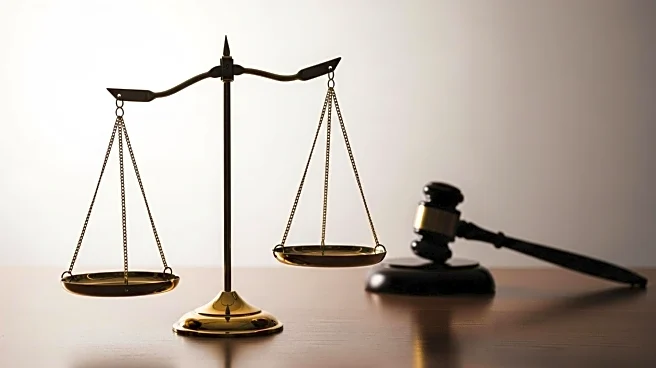What's Happening?
A federal judge in New York has ruled that Saudi Arabia can face a civil lawsuit from the families of 9/11 victims, who allege the kingdom's involvement in supporting the hijackers. The decision by U.S. District Judge George Daniels denies Saudi Arabia's attempt to dismiss the lawsuit, which has been ongoing since 2003. The case is based on the Justice Against Sponsors of Terrorism Act, which provides an exception to sovereign immunity for the families. The plaintiffs claim that two Saudi citizens, Omar al-Bayoumi and Fahad al-Thumairy, were sent by the Saudi government to assist the hijackers. The judge found that the families presented reasonable evidence to support their claims, including Bayoumi's alleged covert activities and Thumairy's financial connections to the Saudi government. Saudi Arabia has denied these allegations.
Why It's Important?
The ruling is significant as it allows the families of 9/11 victims to pursue legal action against Saudi Arabia, potentially holding the kingdom accountable for its alleged role in the attacks. This decision could have broader implications for U.S.-Saudi relations, as it challenges the notion of sovereign immunity and opens the door for further legal scrutiny of Saudi actions. The case also highlights the ongoing quest for justice and closure by the victims' families, who have been seeking accountability for nearly 24 years. If successful, the lawsuit could lead to substantial financial compensation and a reevaluation of diplomatic ties between the U.S. and Saudi Arabia.
What's Next?
The families can now proceed with evidence collection and depositions of Saudi officials, which may provide further insights into the alleged complicity of Saudi Arabia in the 9/11 attacks. The legal process will likely involve extensive discovery and could take years to resolve. The outcome of the case may influence future litigation involving foreign governments and their alleged support for terrorism. Additionally, the ruling may prompt political and diplomatic discussions regarding the implications of holding a sovereign state accountable in U.S. courts.









